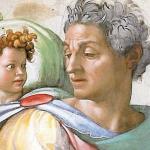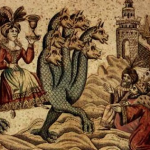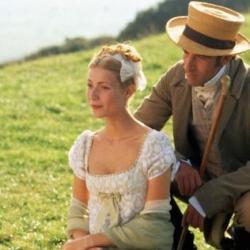It’s difficult to imagine two books on the same topic more different than the two under review here. Though both have “Jane Austen” in the title, they diverge in sources, methods, aims, conclusions, interests, and style. Paula Hollingsworth—a priest and a frequent speaker on English literature—offers straightforward biography and brief but close readings in The Spirituality of Jane Austen. Devoney Looser—a professor of English at Arizona State University—doesn’t pay much attention to the “real” Austen or the text of her novels in the Making of Jane Austen; her book studies the way Austen’s novels were depicted in various media.
Hollingsworth is old-fashioned; Looser couldn’t be trendier. Perhaps the main difference is this: Looser plays roller derby under the name “Stone Cold Jane Austen.” Hollingsworth doesn’t.
THE CHRISTIAN AUSTEN
Hollingsworth’s project is noble and necessary. She sets out to show that Austen was a Christian who wrote Christian fiction. Both statements are correct, and often neglected. Readers familiar only with the Collinses and Eltons of Austen’s novels may forget her father was a minister in the Church of England, she was a lifelong churchgoer, and two of her brothers were also pastors. Hollingsworth rightly puts Austen where she belongs—in a clerical home.
The Spirituality of Jane Austen interweaves biography with summaries and criticism of Austen’s novels. The criticism is often insightful. Hollingsworth is very good on Mansfield Park. In her reading, Fanny Price saves the Park, and she nicely observes that the novel ends with a “judgment day” that consigns each character to his and her deserved fate. Dr. Grant, the dilatory parson of the Park, is consigned to the infernal settings of Bath and then London, where he dies as a result of “three great institutionary dinners in one week” (quoted 133). Hollingsworth offers some neat glosses on Persuasion as well. Sir Walter Elliot consults the Baronetage for consolation, as if it were a holy book. He, too, is eventually sent off to Bath (did he ever meet Dr. Grant?), outcast from the ancestral home in which he took such vain pride.
Yet Hollingsworth’s properly Christian reading of the novels at times results in superficial analogies. It’s true that the Dashwoods’ “experiences of loss followed by inner growth leading to new life mirror the biblical story at the heart of the Christian faith—death and resurrection” (62). But Hollingsworth says the same of Pride and Prejudice (74), and we begin to suspect that her category is so large and flexible it will apply to anything.
Continue at The Gospel Coalition.











